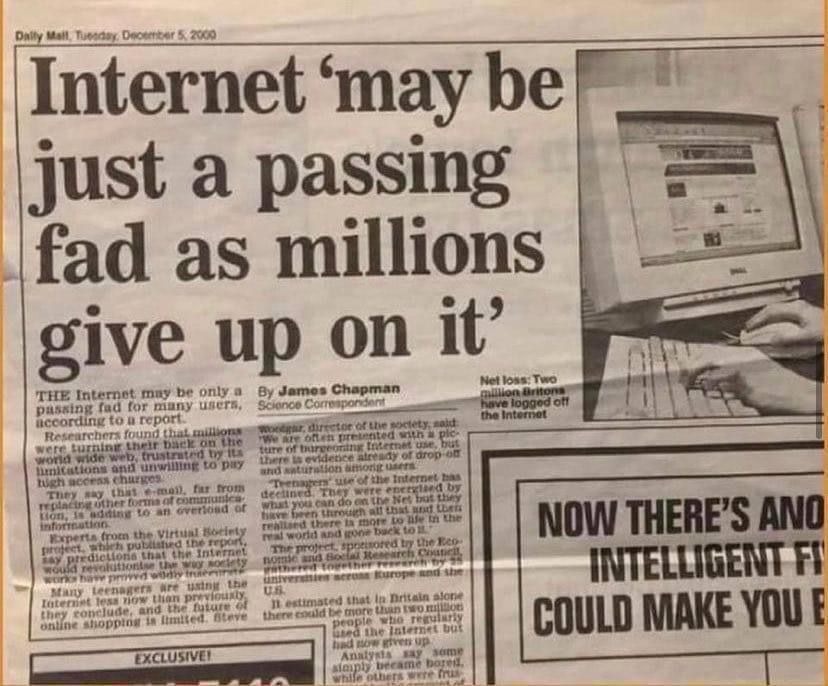The internet is in a state of flux, with everything changing rapidly. There is broad dissatisfaction with the dominant search engine, and activists are worried about the privacy implications of increasingly intrusive online surveillance. Amidst all this change, an off-putting nerd named Elon Musk won’t stop talking about an “everything app” called X that will help him manifest his extremist views. But more than anything, it is a time when the internet seems ripe for change, perhaps even being wide open to a new cohort of technologies and communities that could reshape the way it works.
The era we are talking about is 2000. But it could just as easily be 2024 because this new year offers many echoes of a moment we haven’t seen in a quarter-century. Some of the most dominant companies on the internet are at risk of losing their relevance, and the rest of us are rethinking our daily habits in ways that will shift the digital landscape as we know it. The stores that deliver all the apps on our phones are cracking open, the walls between social media platforms are coming down as the old networks fail, and the headlong rush towards AI is making our search engines and work apps weirder (and often worse!). But amidst it all, the human web, the one made by regular people, is resurgent. We are about to see the biggest reshuffling of power on the internet in 25 years, in a way that most of the internet’s current users have never seen before.
The first thing to understand about this new era of the internet is that power is, undoubtedly, shifting. Regulators are now part of the story, and tech giants like Apple are being forced to hold their noses and embrace mandated changes like opening up their devices to allow alternate app stores to provide apps to consumers. This could be good news, increasing consumer choice and possibly enabling different business models.
For an entire generation, the imagination of people making the web has been hemmed in by the control of a handful of giant companies that have had enormous control over things like search results, app stores, ad platforms, or payment systems. Going back to the more free-for-all nature of the Nineties internet could mean we see a proliferation of unexpected, strange new products and services.
Twitter’s slide into irrelevance and extremism as it decays into X has hastened the explosive growth of a whole host of newer social networks. There’s the nerdy vibes of the noncommercial Mastodon communities, the raucous hedonism of Bluesky, and the at-least-it’s-not-LinkedIn noisiness of Threads, brought to you by Instagram, meaning Facebook, meaning Meta. There are lots more, of course, and probably another new one popping up tomorrow, but that’s what’s great about it.
A generation ago, we saw early social networks like LiveJournal Xanga Black Planet Friendster and many others come and go, each finding its specific audience and focus. For those who remember a time in the last century when things were less homogenous, it’s easy to understand the appeal of an online equivalent to different, connected neighborhoods that each have their vibe.
While this new, more diffuse set of social networks sometimes requires a little more tinkering to get started, they epitomize the complexity and multiplicity of the weirder and more open web that’s flourishing today. What’s more, the people who had been quietly keeping the spirit of the human, personal, creative internet alive are seeing a resurgence now that the web is up for grabs again.
We’re seeing the biggest return to that human-run, personal-scale web that we’ve witnessed since the turn of the millennium, with enough momentum that 2024 is likely the first year since then that many people have the experience of making a new connection or seeing something go viral on a platform that’s being run by a regular person instead of a commercial entity. It’s going to make a lot of new things possible.














